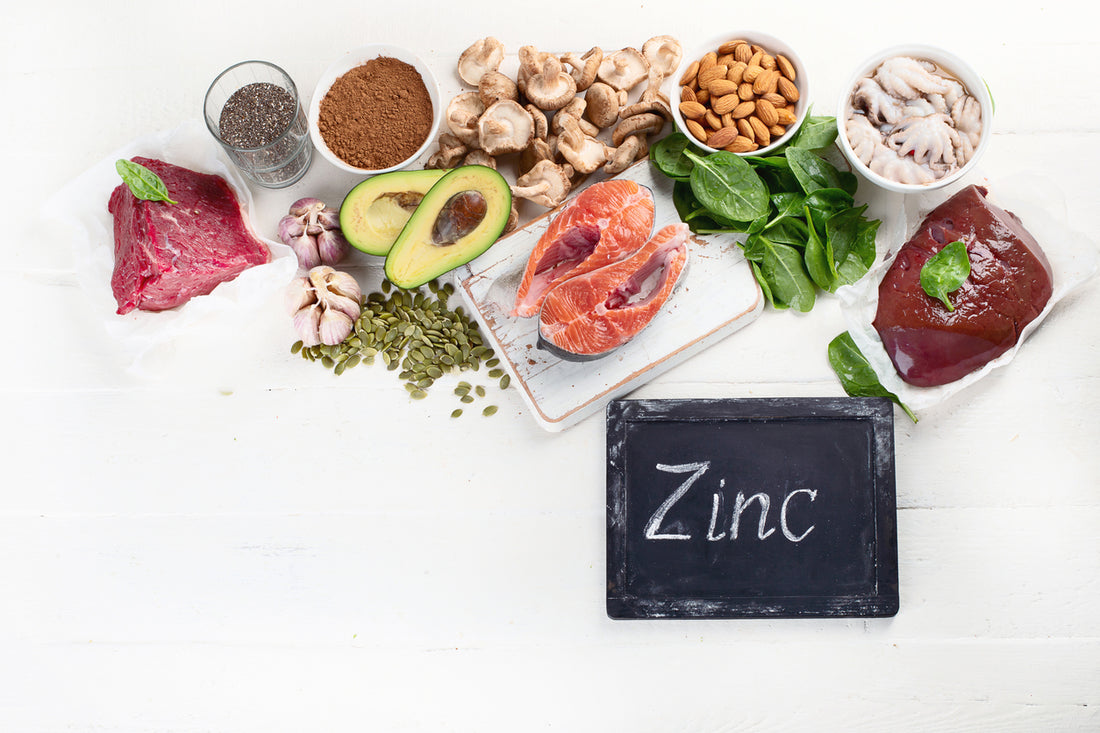
Benefits of Zinc, where to find it, and how to supplement it.
Zinc is an essential mineral that plays a crucial role in various aspects of human health. It is involved in numerous physiological processes and is required for the proper functioning of enzymes, immune system function, DNA synthesis, and wound healing, among other functions.
The Benefits of Zinc
Immune System Support
Zinc is known to boost the immune system, helping the body fight off infections and illnesses. It plays a role in the production and function of white blood cells, which are key components of the immune response.
Wound Healing
Zinc is necessary for the synthesis of collagen, a protein that is crucial for wound healing and maintaining healthy skin.
Cell Growth and Repair
Zinc is involved in cell division and growth, making it essential for the repair and maintenance of tissues throughout the body.
Sense of Taste and Smell
Adequate zinc levels are necessary for the proper functioning of taste and smell receptors.
Fertility
Zinc is important for both male and female reproductive health. In men, it plays a role in sperm production, while in women, it is involved in the production of eggs and hormonal regulation.
Cognitive Function
Zinc has been linked to cognitive function and may play a role in preventing age-related cognitive decline.
Antioxidant Properties
Zinc acts as an antioxidant, helping to protect cells from damage caused by free radicals.BEST FOOD SOURCES
Meat
Red meat, particularly beef and lamb, is one of the best sources of zinc. Organ meats like liver also contain high amounts of zinc.
Seafood
Oysters are renowned for their exceptionally high zinc content. Other seafood sources include crab, lobster, and shrimp.
Poultry
Chicken and turkey are good sources of zinc, especially in the dark meat.
Dairy Products
Dairy foods like milk and cheese contain moderate amounts of zinc.
Nuts and Seeds
Some nuts and seeds, such as pumpkin seeds and cashews, are decent sources of zinc.
SUPPLEMENTING WITH ZINC
Consult a Healthcare Professional before starting any new supplement regimen, as they can assess your specific nutritional needs.
Choose the Right Form
Zinc supplements come in various forms, such as zinc gluconate, zinc sulfate, zinc citrate and zinc bisglycinate . The choice of form may affect absorption and tolerability.
Follow Recommended Dosages
Avoid taking excessive amounts of zinc, as it can interfere with the absorption of other minerals like copper and cause adverse effects.
Consider Zinc from Food First
Whenever possible, try to meet your zinc requirements through a diet that includes zinc-rich foods as noted above. Supplements should be a supplement to a healthy diet, not a replacement.
Be Aware of Interactions
Some medications and medical conditions can interact with zinc supplements, so it's important to discuss this with your healthcare provider or do your own in-depth research.
Conclusion
Zinc is a vital mineral with numerous health benefits, and it can be obtained from various dietary sources. If you're considering zinc supplementation, seek guidance from a healthcare professional to ensure it's appropriate for your individual needs.